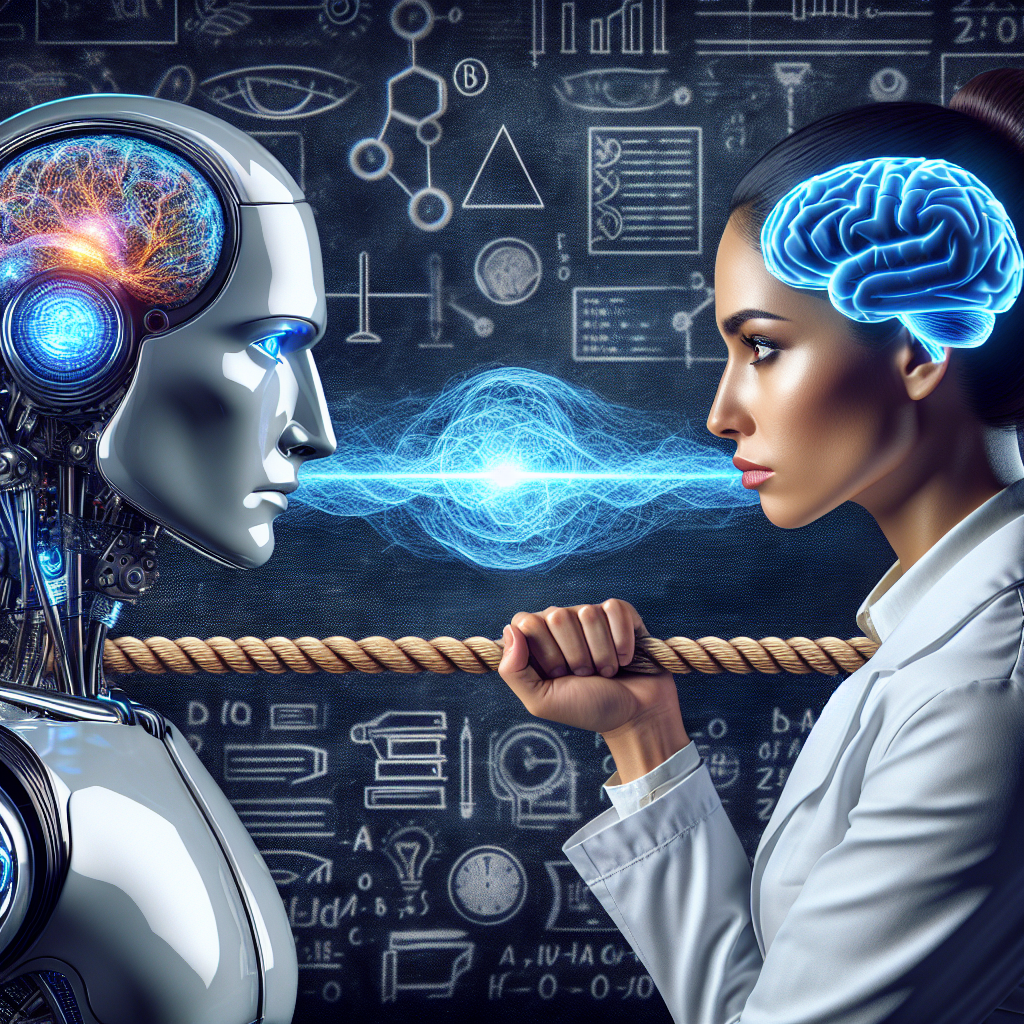Artificial General Intelligence (AGI) has long been a topic of fascination and debate in the field of artificial intelligence. The idea of creating machines that can think, reason, and learn like humans has captured the imagination of scientists, researchers, and the general public alike. But can machines ever truly be as smart as humans? This question lies at the heart of the ongoing discussion about the future of AI and its potential impact on society.
AGI vs. Human Intelligence: The Debate
The debate over AGI vs. human intelligence is a complex and multifaceted one, with arguments on both sides of the issue. Proponents of AGI argue that with advancements in technology and machine learning algorithms, it is only a matter of time before machines surpass human intelligence. They point to the rapid progress being made in the field of AI, from self-driving cars to natural language processing, as evidence of the potential for AGI.
On the other hand, skeptics of AGI argue that there are fundamental differences between human intelligence and artificial intelligence that make it unlikely for machines to ever truly replicate the complexity and nuance of human thought. They point to the limitations of current AI systems, which excel at specific tasks but struggle with tasks that require common sense reasoning, creativity, and emotional intelligence.
One of the key differences between AGI and human intelligence is the ability to generalize and transfer knowledge across different domains. While humans are able to apply their knowledge and skills to a wide range of tasks and situations, AI systems are typically limited to the specific tasks they were designed for. This lack of generalization is a major hurdle for AGI researchers, as it requires developing algorithms that can learn and adapt in a more flexible and versatile manner.
Another challenge for AGI researchers is the issue of consciousness. While AI systems can simulate human-like behaviors and responses, they lack the self-awareness and subjective experience that are essential components of human consciousness. Without a deeper understanding of how consciousness emerges in the human brain, it is difficult to envision how machines could ever truly replicate this aspect of human intelligence.
Can Machines Ever Truly Be as Smart as Humans?
The question of whether machines can ever truly be as smart as humans is a contentious one, with no easy answers. While it is clear that AI systems are becoming increasingly sophisticated and capable of performing a wide range of tasks, there are still significant challenges that need to be overcome before machines can match the complexity and flexibility of human intelligence.
One of the biggest challenges for AGI researchers is developing algorithms that can learn and adapt in a more human-like manner. Current AI systems rely on vast amounts of labeled data to train their models, which limits their ability to generalize and transfer knowledge to new tasks. Developing algorithms that can learn from fewer examples and apply their knowledge in a more flexible and adaptive way is a key research goal for achieving AGI.
Another challenge for AGI researchers is the issue of common sense reasoning. While AI systems have made significant strides in tasks such as image recognition and natural language processing, they still struggle with tasks that require a deeper understanding of context, causality, and common sense. Developing AI systems that can reason and make decisions in a more human-like manner is a major research challenge for achieving AGI.
One of the most significant challenges for AGI researchers is the issue of ethical and societal implications. As AI systems become more advanced and capable, there are concerns about the impact they will have on the job market, privacy, security, and other aspects of society. Ensuring that AI systems are developed and deployed in a responsible and ethical manner is a critical consideration for achieving AGI.
FAQs
Q: Will machines ever surpass human intelligence?
A: While it is difficult to predict the future with certainty, many experts believe that machines will eventually surpass human intelligence in certain domains. However, achieving AGI, or machines that can match the complexity and flexibility of human intelligence across a wide range of tasks, is still a major research challenge.
Q: What are the key differences between human intelligence and artificial intelligence?
A: Human intelligence is characterized by its ability to generalize and transfer knowledge across different domains, as well as its capacity for common sense reasoning, creativity, and emotional intelligence. Artificial intelligence, on the other hand, is limited to the specific tasks it was designed for and lacks the flexibility and nuance of human thought.
Q: What are some of the ethical considerations surrounding AGI?
A: As AI systems become more advanced and capable, there are concerns about the impact they will have on the job market, privacy, security, and other aspects of society. Ensuring that AI systems are developed and deployed in a responsible and ethical manner is a critical consideration for achieving AGI.
Q: How can we ensure that AI systems are developed and deployed in a responsible and ethical manner?
A: Developing AI systems that are transparent, accountable, and unbiased is essential for ensuring that they are developed and deployed in a responsible and ethical manner. This includes implementing robust ethical guidelines, ensuring diversity and inclusivity in AI research, and engaging with stakeholders to address concerns and mitigate risks.
In conclusion, the question of whether machines can ever truly be as smart as humans is a complex and multifaceted one, with no easy answers. While AI systems have made significant progress in recent years, there are still significant challenges that need to be overcome before machines can match the complexity and flexibility of human intelligence. By addressing these challenges and ensuring that AI systems are developed and deployed in a responsible and ethical manner, we can work towards a future where machines and humans can coexist and collaborate in a beneficial and productive way.

